Salted eggs are a cherished treat throughout Southeast Asia, celebrated for their savory umami flavor that elevates a variety of dishes. Rooted in Chinese culinary heritage, the tradition of preserving eggs in salt has been embraced and adapted across the region, with each country adding its distinctive touch.
Though the core process remains similar, countries differ in their names, preparation techniques, and culinary uses of this versatile ingredient. Let’s embark on a flavorful exploration of salted eggs in Southeast Asia.
A popular way to savor salted eggs in the region is alongside congee, a comforting rice porridge. The rich, orange-hued yolk and the salty tang of the egg white perfectly enhance the mild flavor of congee, creating a delightful balance of taste and texture. This humble yet fulfilling pairing is a breakfast favorite in many Southeast Asian cultures.
Myanmar (Burma)
In Myanmar, where Burmese is the official language, salted eggs are called ဆားဘဲဥ (saarbe'u), which directly translates to "salted duck egg." This name underscores the common use of duck eggs in the tradition of preserving them with salt.
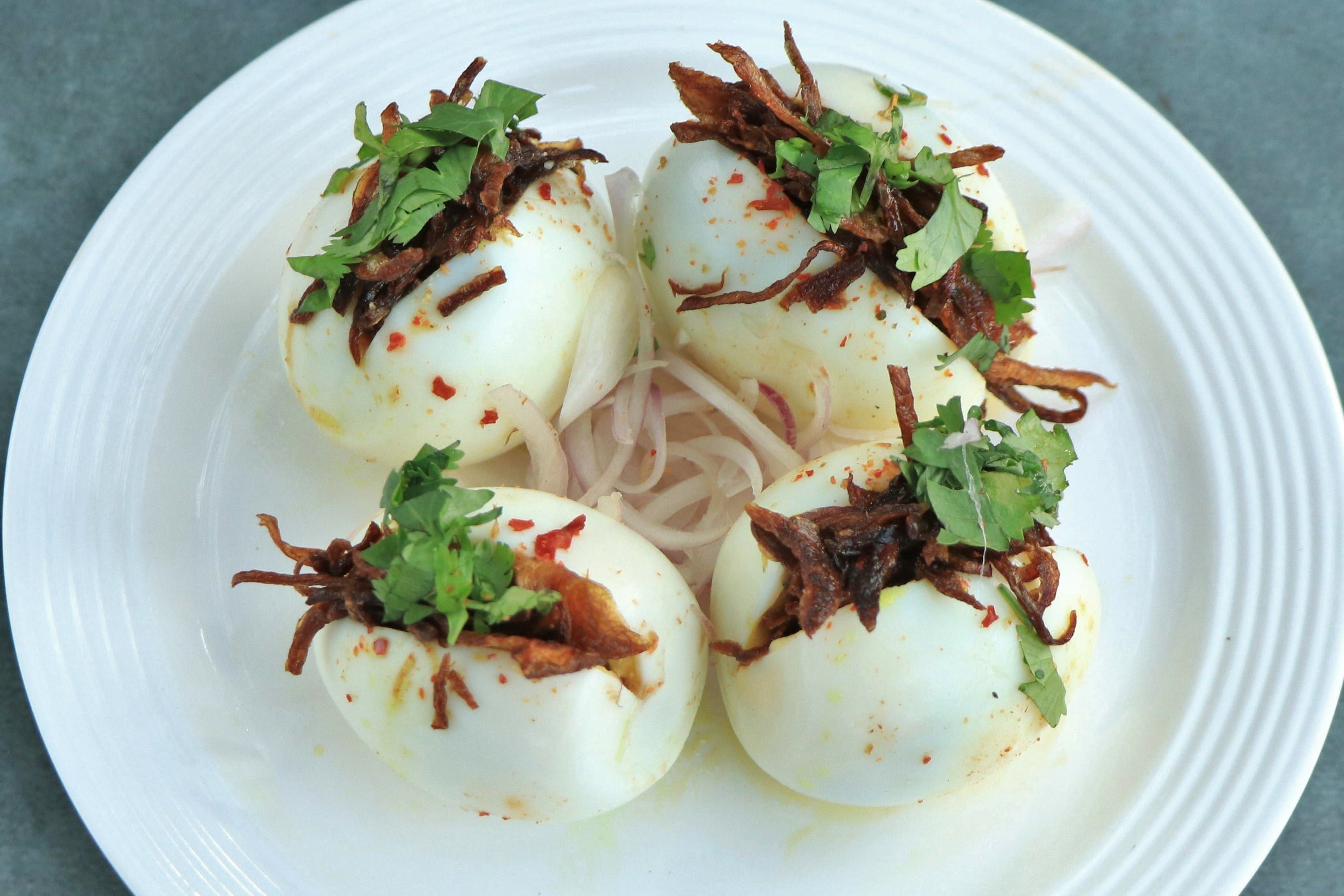
Although there isn’t clear cultural symbolism tied to salted eggs in Myanmar, they remain a beloved ingredient in many dishes. One standout example is "egg bhejo," a popular street food where hard-boiled eggs are halved and filled with a savory blend of fried onions, garlic, and spices.
Thailand
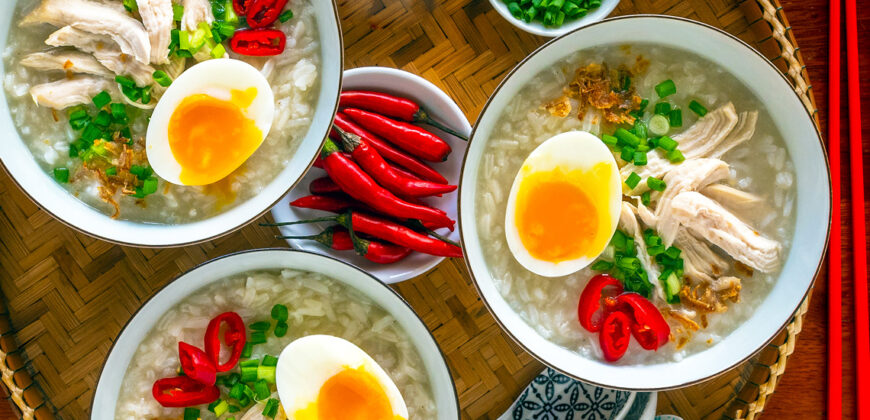
Thailand’s diverse and vibrant culinary traditions have wholeheartedly embraced salted eggs. Known locally as ไข่เค็ม (khai kem), meaning "salty egg," they are a staple in Thai cuisine, appearing in both savory and sweet creations. Some common uses include:
- Khao Tom: A soothing rice soup often accompanied by salted eggs.
- Yam Kai Kem: A tangy, flavorful salad centered on salted eggs.
- Khao Pad Kai Kem: Salted egg fried rice, a favorite street food dish.
- Salted Egg Squid: Squid cooked in a rich, savory salted egg sauce.
- Desserts: Salted egg yolks lend a savory depth to sweets like bua loy (sticky rice balls in coconut milk).
Traditionally, salted eggs in Thailand were made by burying them in mangrove forest sand—a method passed down through generations, reflecting the interplay between this coastal technique and the inland culinary staple.
Laos
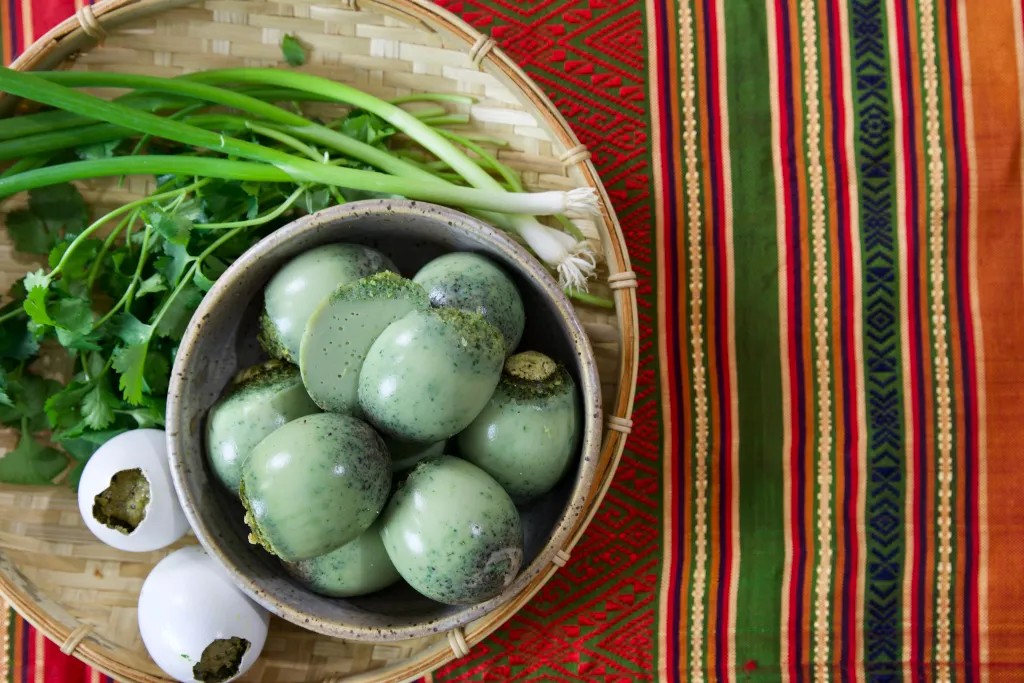
In Laos, where Lao is the official language, salted eggs are a staple ingredient in traditional cuisine. They are often paired with sticky rice or used in various local dishes. A particularly unique preparation method involves creating "Khai Being Lao," a baked seasoned egg delicacy. This intricate process starts by puncturing the eggs to remove their contents, which are then mixed with spices before being carefully baked to perfection.
Vietnam
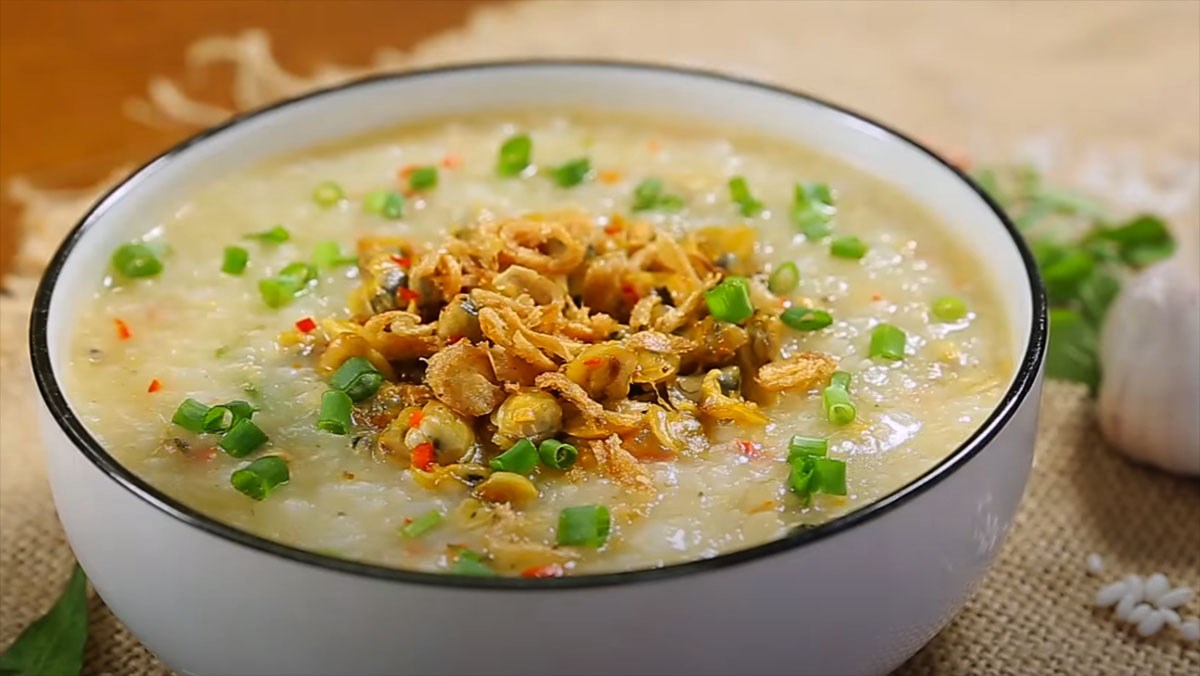
Vietnamese cuisine showcases a wide array of egg-based dishes, with salted eggs holding a special place. Called trứng vịt muối or hột vịt muối, these delicacies are typically made from duck eggs. The term combines "trứng" (egg) and "vịt muối" (salted duck), reflecting their origin. Valued for their creamy, rich yolks, salted eggs are featured in several beloved Vietnamese dishes, such as:
- Cháo: A comforting rice congee, often enjoyed for breakfast with a salted egg.
- Salted Egg Tofu: Fried tofu smothered in a luscious salted egg sauce.
- Salted Egg Soft-Shell Crabs: Soft-shell crabs fried and coated in a savory, creamy salted egg sauce.
- Shrimp with Salted Egg Sauce: Juicy shrimp paired with the indulgent richness of salted egg yolks.
These dishes highlight the versatility of salted eggs in elevating both simple and elaborate meals within Vietnamese culinary traditions.
Cambodia
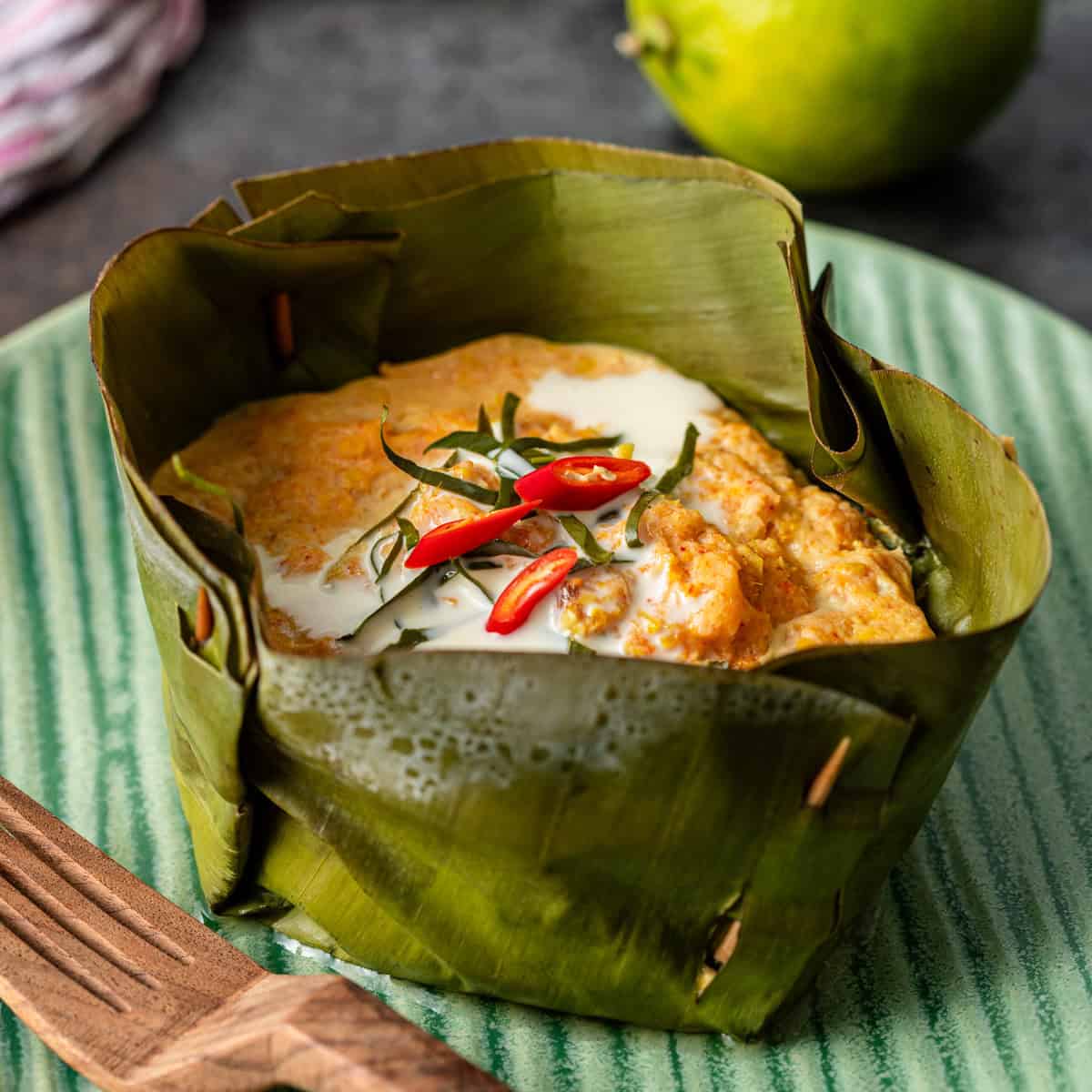
Cambodia’s culinary traditions are deeply intertwined with the use of salted eggs. Referred to as ពងទាប្រៃ (pong tea brai) in Khmer, the country’s official language, these eggs are cherished for their savory umami flavor. They are often incorporated into classic dishes like Amok (a traditional Khmer curry) and Bai Sach Chrouk (grilled pork served with rice). Beyond these hearty meals, salted eggs are also enjoyed in simpler forms, such as boiled and paired with rice porridge or sticky rice, making them a versatile staple in Cambodian cuisine.
Malaysia
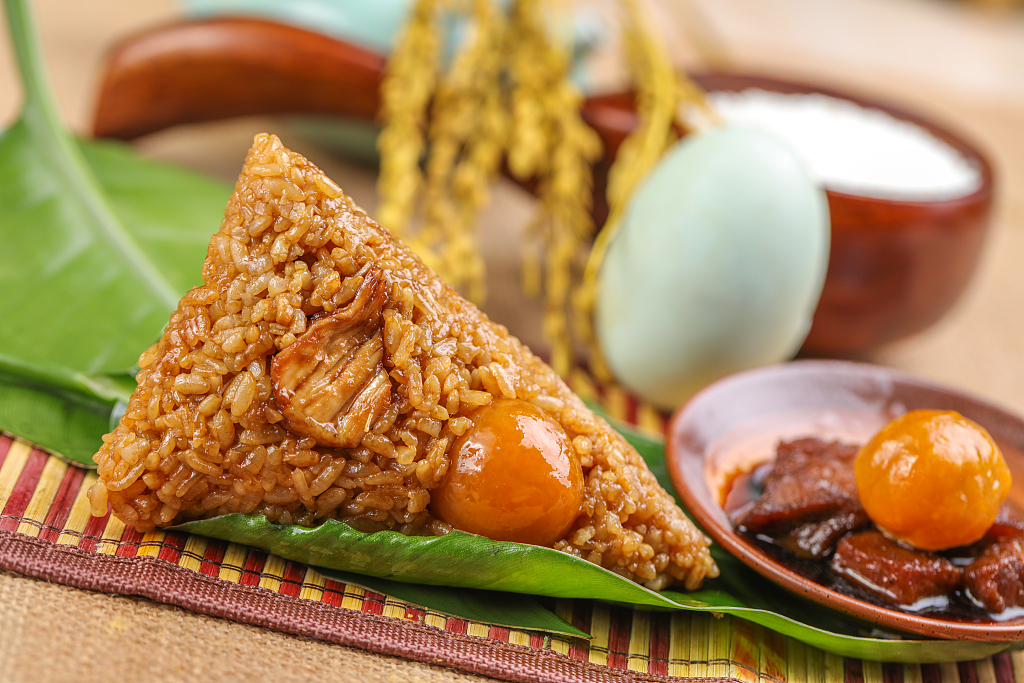
Malaysia’s rich and multicultural food heritage prominently features salted eggs, known locally as telur masin in Malay. These eggs are a common ingredient in numerous dishes, including:
- Congee: A comforting breakfast staple that pairs well with salted eggs.
- Salted Egg Sauce: A creamy and savory sauce used to flavor meats and seafood.
- Zongzi: Savory dumplings often filled with salted egg yolks, enjoyed during the Dragon Boat Festival.
- Mooncakes: A popular filling, especially during the Mid-Autumn Festival, where the yolks add a delightful richness.
- Bunga Telur (Flower Egg): A Malay wedding tradition where hard-boiled eggs, dyed red and ornately decorated, are given as symbols of fertility and new beginnings.
Singapore
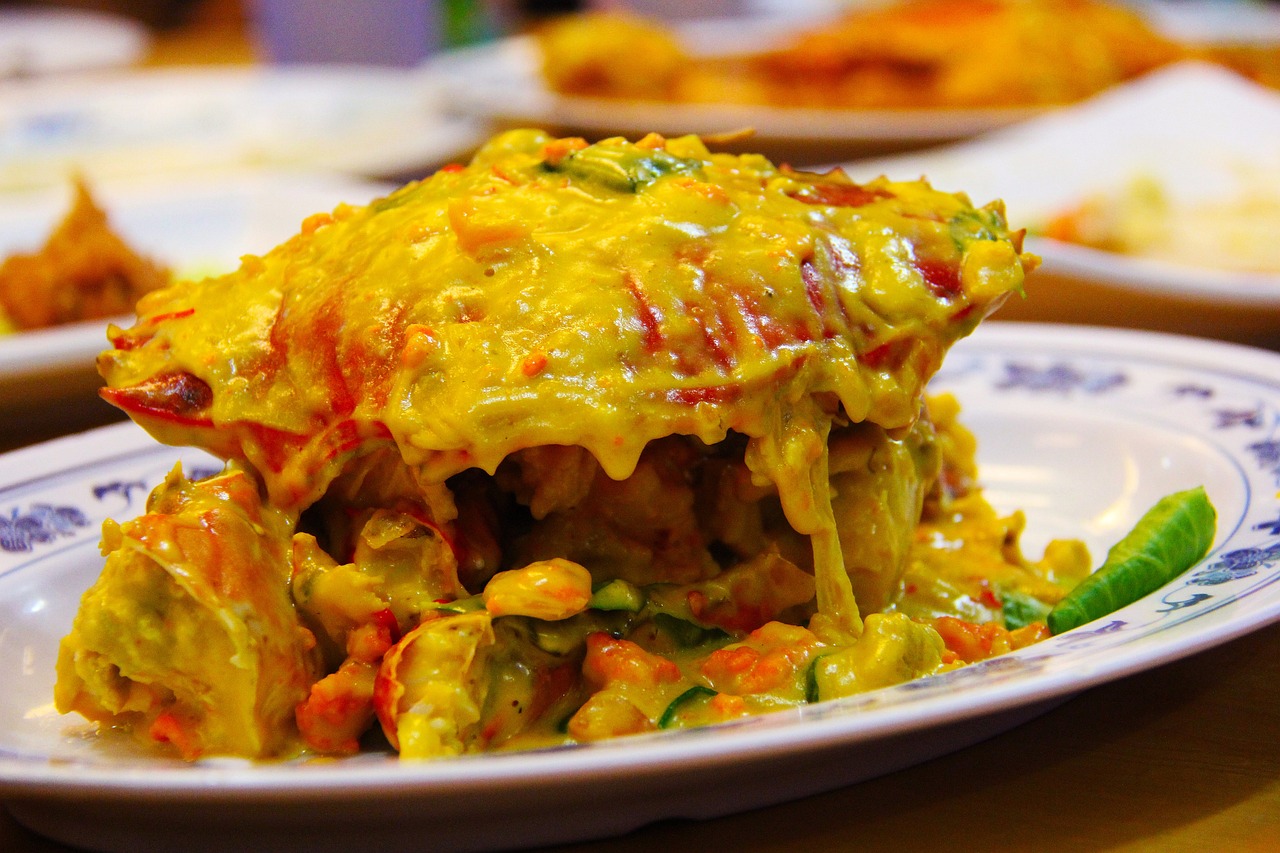
As a cultural crossroads, Singapore has reimagined salted eggs with a contemporary flair. While the term "salted egg" is widely recognized in English, the Chinese equivalent, 咸蛋 (xián dàn), is also commonly used. The city-state's culinary innovation has given rise to a variety of creative salted egg dishes, including:
- Salted Egg Yolk Chicken: A beloved "zi char" dish featuring fried chicken drenched in a creamy salted egg sauce.
- Salted Egg Crab: A local classic where succulent crab is coated in a rich salted egg sauce.
- Salted Egg Pork Rib Rice: A budget-friendly yet flavorful option found in hawker centers and food courts.
- Salted Egg Prawns: Fresh prawns cooked with salted egg sauce, a popular choice in "cze char" stalls.
- Salted Egg Lobster Thermidor: A fine-dining creation showcasing the luxurious potential of salted egg yolk.
- Salted Egg Yolk Sauces: Versatile sauces that elevate stir-fries, gravies, and various dishes with their savory richness.
- Salted Egg Snacks: From potato chips to fish skin, salted egg-flavored snacks enjoy widespread popularity, reflecting the enduring appeal of this distinct taste.
Indonesia

In Indonesia, salted eggs are called telur asin and hold a significant place in the country’s culinary history, rooted in age-old preservation techniques. Typically enjoyed as a side to rice or as part of other dishes, salted eggs are a versatile ingredient in Indonesian cuisine.
A notable variation is telur pindang, where eggs are simmered with spices and herbs, giving them a distinctive dark brown hue and extended shelf life. This preparation is often served with traditional dishes like tumpeng (a conical rice dish) and nasi kuning (turmeric rice). Beyond their flavor, salted eggs carry cultural symbolism in Indonesia, often representing fertility and good fortune.
Brunei
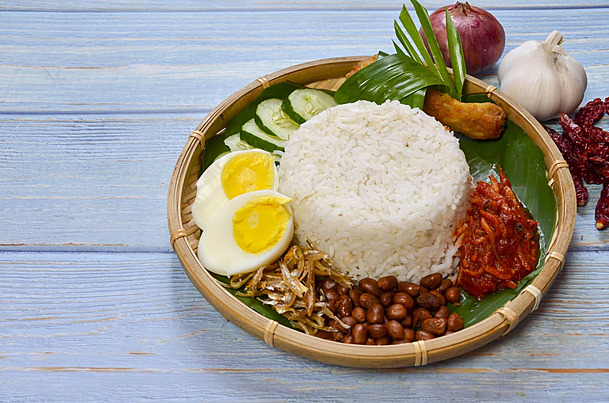
Despite its small size, Brunei boasts a rich culinary heritage, where salted eggs are a favored delicacy. Although the specific Malay term used locally is uncertain, it is likely similar to Malaysia's telur masin. Salted eggs frequently accompany traditional dishes like nasi lemak, a fragrant rice meal cooked in coconut milk, where they are served as a flavorful side.
Philippines

In the Philippines, salted eggs are referred to as itlog na maalat (salty egg) or itlog na pula (red egg), the latter name stemming from the practice of dyeing the eggs red. This vibrant hue, influenced by Chinese culture, symbolizes luck and adds a touch of tradition. Salted eggs are a versatile ingredient in Filipino cuisine, often featured in:
- Condiments: Paired with rice, congee, or rice cakes like puto and bibingka.
- Salads: A highlight in dishes like Ensaladang Pako (fiddlehead fern salad).
- Savory dishes: Commonly served with arroz caldo (rice porridge), a comforting remedy for an upset stomach.
In addition to their cultural significance, salted eggs are valued as a budget-friendly protein source and remain widely accessible across the Philippines.
Regional Variations in Southeast Asia
While salted eggs are enjoyed throughout Southeast Asia, there are some interesting regional variations in their preparation and use:
- Thailand: In the Chaiya district of Surat Thani, salted eggs are renowned for their bright red yolks, achieved through specialized brining methods.
- Vietnam: In southern Vietnam, salted duck eggs are popular as a late-night snack, often paired with rice porridge and savory accompaniments.
- Indonesia: On Java Island, a variant known as telur asin pindang is prepared by boiling eggs with spices and herbs, resulting in a dark brown hue and a firmer texture.
These variations highlight the versatility and cultural integration of salted eggs throughout the region.



















